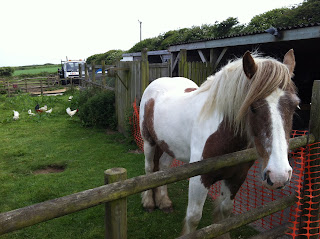Paradoxically, it can also be the worst spot on earth. A grey, depressing, bleak country, where people turn in upon themselves and barricade themselves into their homes. England can be a cold, soul destroying environment where even the simplest things seem impossible, and life appears to stretch endlessly into a vast chasm of future misery.
The truth is that my home country perpetually swings between these two extremes depending on one simple factor – the weather. Few other countries in the world are gripped so mercilessly by the weather gods than England – the fickle unpredictability of the climate means that nothing can be planned, that events can be ruined or made gloriously memorable depending on whether the sun decides to show its face or not and that as a result, we’re a nation obsessed by the weather barometer.
Most non Brits fail to understand our fixation with the weather. Those who live in more constant climates simply don’t get why we have to talk about it so obsessively and why it affects our lives the way it does. Essentially, it all comes down to a lack of control. Living in Mumbai, you know for sure that June to September will be wet and warm, October, March April and May will be fearsomely, blisteringly hot and humid, and November to February will be cooler and fresher, perfect months for planning outdoor parties, events and weddings. Though there are occasional surprises, when for example the temperature drops below 10 degrees celsius or when the Monsoon comes early or there’s a spatter of rain in February, but generally speaking the seasons are constant and wonderfully predictable. Mumbaikars plan their lives around the climate changes – some escape the monsoon rains for sunny European cities, others make the most of the few weeks of lush tropical landscapes which the annual downpour creates. Americans and even Parisians escape the searing summer months, and most of Southern Europe downs tools during the hot season.
England on the other hand is perpetually on the brink of indecision and arbitrary swings when it comes to the seasons. The newspapers are constantly full of headlines about snow in April, blistering heatwaves in September, and rain, always the rain, constant and about the only thing you can rely on to show its face when you least need it. England’s rain is not the warm, heavy raindrops of tropical climes. Nor is it a welcome spattering of coolness during an otherwise oppressive and sultry day. No, this kind of rain is random – it can appear suddenly even when you think the day will be bright and clear, and it can quickly turn nasty, with sheets of drizzle soaking everyone through to the bone, accompanied by a persistent wind chill which makes everything miserable. And with the rain comes the leaching of colour from the landscape, as bright hues make way for a palette of greys and muddy browns, and the country starts to scowl and eventually lose its collective temper.

Its not all bad of course. On the brief occasions where the weather is good and even great, the entire country joins in celebration, and a weird kind of camaraderie emerges, unheard of in England’s typically closed culture, where people normally shut themselves inside their houses and shy away from engaging with each other. Suddenly people are sharing spaces, crammed up against each other in parks, removing items of clothing and making casual, spontaneous conversation with strangers. And then, just when England seems on the brink of becoming a happier, more positive, friendlier country, the weather patterns shift, the sun disappears, and with it the atypical affability. Back comes the English reserve, and out come the umbrellas.
Mind you, on the rare occasions when the sun does decide to stick around, the childish delight in the warmth is soon replaced by a collective whining about the heat – we Brits generally weren’t made for warm weather, and somehow the average cool, grey climate suits our Eeyorish personalities. We need something to talk about, we crave something to bond our nation together, and that something is the weather. It’s a collective enemy which unites, and we generally prefer that its not too good to us, otherwise we lose the vital social glue of talking about the weather that we’ve come to rely on. Listen to any strangers conversing, or even on any groups of English people meeting or talking on the phone – it is virtually guaranteed that any conversation will either start with an opener about the weather, or meander on to the topic. We are a nation obsessed and in thrall to an unpredictability which those in the tropics or in perpetually cold countries don’t get. Its one of the things which makes us so sweetly eccentric I suppose, and its certainly one of the main reasons for my fleeing the country twelve years ago.




